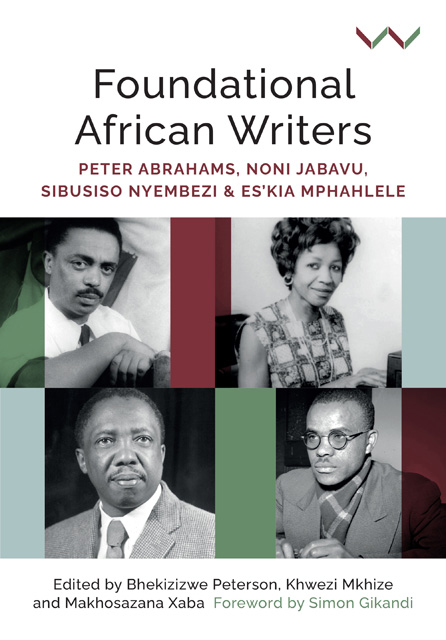Book contents
- Frontmatter
- Contents
- List of illustrations
- Foreword
- Acknowledgements
- Tribute to Professor Bhekizizwe Peterson
- Introduction
- Part I Remapping and Rereading African Literature and Cultural Production
- Part II South Africa and Fugitive Imaginaries
- Part III In the Eye of the Short Century: Diaspora and Pan-Africanism Reconsidered
- Contributors
- Index
15 - The ‘Crossroads and Forkways’ of Pan-Africanism between 1948 and 1968
Published online by Cambridge University Press: 01 September 2022
- Frontmatter
- Contents
- List of illustrations
- Foreword
- Acknowledgements
- Tribute to Professor Bhekizizwe Peterson
- Introduction
- Part I Remapping and Rereading African Literature and Cultural Production
- Part II South Africa and Fugitive Imaginaries
- Part III In the Eye of the Short Century: Diaspora and Pan-Africanism Reconsidered
- Contributors
- Index
Summary
The historical, socio-political and cultural factors and dynamics that fostered, challenged and even unravelled the notion of Africa and the project of Pan-Africanism amongst black South African writers are at the centre of this chapter. The discussion explores the idea of Africa and its attendant political and aesthetic imaginaries between 1948 and 1968 in Drum magazine, and in the work of Peter Abrahams, Noni Jabavu, Sibusiso Nyembezi and Es’kia Mphahlele (of whom Abrahams and Mphahlele were associated with the magazine). My interest is in the valences and cadences of the lifeworlds of the centenarians – as encountered in experience, affect and cosmology; I will examine why and how these were deeply constitutive of their subjectivities, ideologies and aesthetics, particularly as evident in the significance and their treatment of the politics of temporality, place and identity. The complex exigencies and articulations between the latter three problematics, and their generation of social convulsions and tactile memories, are suggested in Mphahlele’s prescient evocation of ‘the tyranny of place, of time … the muck, the smell of it, the fever and the fight’. The imagination, in its wrestling with the tyrannies of place and time, was crucial for Mphahlele in thinking through his question: ‘what is the meaning of Africa?’ It is a question that exceeds the historical reasons that prompted it and also invites reflection on to whom the answer to the enquiry is addressed. Or, in Mphahlele’s words, is the artist and their work informed by ‘a sense of direct connection and relevance to a community or audience’? The varied answers proffered by the centenarians to the above challenges provide a number of generative insights into ‘the crossroads and forkways of blackness’.
In the tracks of Pan-Africanism
Abrahams advised that analyses of South Africa’s politics require that we should try and ‘see the whole scheme of things through th Without implying that history is the bedrock of the imagination, this requires highlighting two pertinent socio-political and cultural challenges that exerted a profound impact on black lives and thought.e long eye of history’.
- Type
- Chapter
- Information
- Foundational African WritersPeter Abrahams, Noni Jabavu, Sibusiso Nyembezi and Es'kia Mphahlele, pp. 329 - 354Publisher: Wits University PressPrint publication year: 2022



